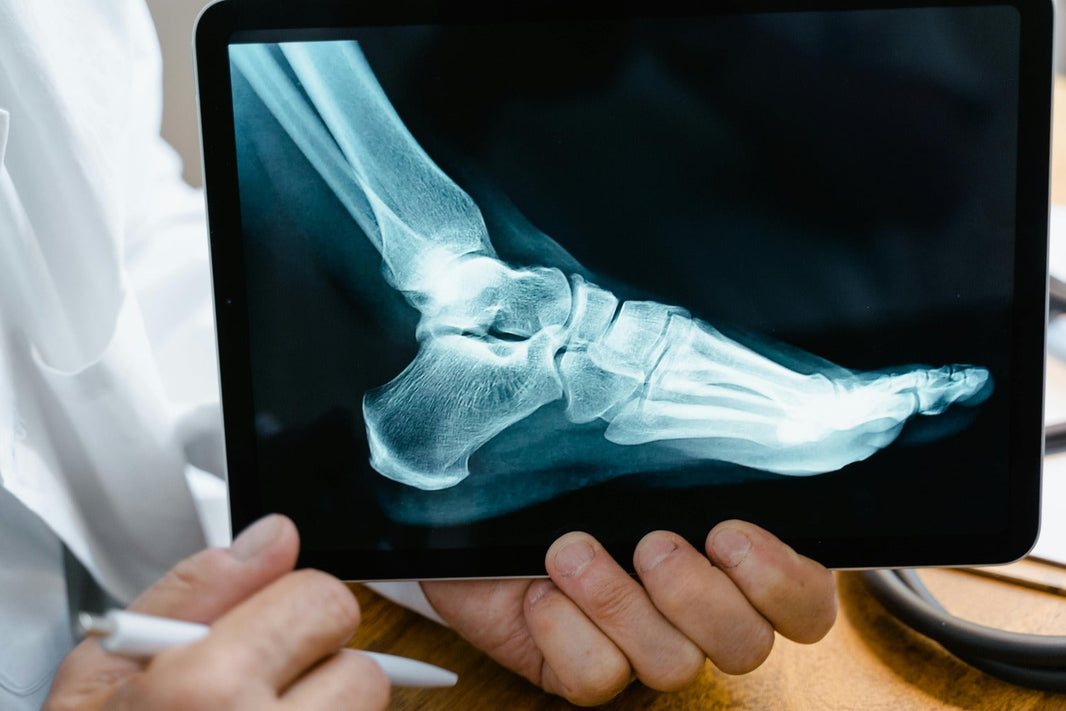Shoulder injury, whether caused by a rotator cuff tear, a sprain, or an overuse strain can significantly impact daily life. Recovery often involves a combination of physical therapy, rest, and sometimes medical interventions. But what if your diet could also play a key role in healing? Recent research suggests that antioxidants, compounds that fight oxidative stress may be powerful allies in recovery. And when it comes to antioxidant-rich foods, berries are among the best. In this blog, we’ll dive into how berries bursting with antioxidants can aid shoulder injury recovery.
Understanding Shoulder Injury and Oxidative Stress
Shoulder injury typically involve inflammation, muscle strain or tendon damage. This inflammation is part of the body’s natural healing process but it can sometimes go overboard causing oxidative stress. The imbalance between free radicals and antioxidants is called oxidative stress. This imbalance can delay healing and even contribute to chronic pain or conditions like frozen shoulder.
Enter Antioxidants: The Body’s Natural Defense
Antioxidants help combat oxidative stress reducing inflammation and promoting tissue repair. They stabilize free radicals preventing them from damaging cells and tissues. By incorporating antioxidant-rich foods into your diet, you may help your body heal more effectively.

Why Berries Are a Shoulder’s Best Friend
Berries such as blueberries, strawberries, raspberries and blackberries are considered to be nutrient powerhouses. They contain:
-
Flavonoids: These plant compounds have potent anti-inflammatory and antioxidant properties. Blueberries for example are rich in anthocyanins which have been shown to reduce inflammation and oxidative damage.
-
Vitamin C: Essential for collagen synthesis vitamin C helps repair connective tissues like tendons and ligaments. Strawberries and raspberries are particularly rich in vitamin C.
-
Ellagic Acid: Found in raspberries and blackberries, ellagic acid has been linked to reduced inflammation and better tissue recovery.
-
Fiber: While not directly related to shoulder injury, fiber supports overall health by improving gut health and reducing systemic inflammation.
The Science Behind Berries and Shoulder Injury Healing
-
Reducing Inflammation: A study published in the Journal of Medicinal Food found that blueberries significantly reduced markers of inflammation in subjects with exercise-induced muscle damage. While this study focused on muscle, the principles also apply to injured tendons and ligaments, which experience similar inflammatory responses.
-
Improving Blood Flow: A 2019 study in Nutrients highlighted that anthocyanins in berries improve endothelial function, enhancing blood flow. Better circulation means more oxygen and nutrients delivered to injured tissues, speeding up recovery.
-
Collagen Production: Vitamin C is a key player in collagen synthesis, a protein crucial for repairing tendons and ligaments. Research in Nutrients emphasized that diets rich in vitamin C accelerated tissue repair in animal models.
-
Combating Oxidative Stress: Berries’ high antioxidant content has been shown to reduce oxidative stress in numerous studies, including a 2021 review in Frontiers in Nutrition. This benefit is especially important for chronic injuries or long-term rehabilitation.
Ways to Incorporate Berries into Your Diet
Incorporating berries into your daily routine is simple and delicious. Here are some ideas:

-
Morning Smoothies: Blend a handful of blueberries, strawberries or raspberries with a banana, spinach, and almond milk. Add a scoop of protein powder for a post-therapy recovery boost.
-
Berry and Yogurt Parfaits: Layer Greek yogurt with fresh or frozen berries and a sprinkle of granola for a nutrient-packed snack or breakfast.
-
Berries as Snacks: Keep a bowl of mixed berries on hand for an easy, antioxidant-rich snack. They’re perfect on their own or paired with nuts for added healthy fats.
-
Berry-Infused Water: Add slices of strawberries and a few blueberries to your water for a refreshing, flavorful hydration option.
-
Berries in Salads: Toss some blackberries or raspberries into a spinach or other vegetable salad. Pair them with walnuts and a balsamic vinaigrette for a perfect balance of flavors.
Addressing Common Questions About Berries and Shoulder Injury Recovery
1.How many berries should I eat daily?
There’s no one-size-fits-all answer, but a serving of 1-2 cups per day is a good starting point. Adjust based on your calorie needs and activity level.
2.Can frozen berries be as effective as fresh ones?
Absolutely. Frozen berries are often picked at peak ripeness and retain most of their nutrients. They’re also convenient and budget-friendly.
3.Are there any side effects of eating too many berries?
While berries are generally safe, consuming excessive amounts could lead to digestive discomfort due to their fiber content. Moderation is key.
Conclusion: Nature’s Healers in a Bowl
Shoulder injury require a multifaceted recovery approach, and diet is a powerful often overlooked component. By incorporating antioxidant-rich berries into your meals you’re not just indulging in delicious flavors but also giving your body the tools it needs to heal. Backed by science, these small fruits pack a big punch in reducing inflammation, boosting blood flow and promoting tissue repair.
So, the next time you’re grocery shopping grab a carton of blueberries or raspberries. Your shoulders will thank you.
References
-
Jiang S, Liu H, Li C. (2021). Dietary Regulation of Oxidative Stress in Chronic Metabolic Diseases. Foods.10.3390/foods10081854.
-
Stanaway L, Rutherfurd-Markwick K, Page R, Ali A., et al. (2017). Performance and Health Benefits of Dietary Nitrate Supplementation in Older Adults: A Systematic Review. Nutrients, 10.3390/nu9111171.
-
Bechara N, Flood VM, Gunton JE., et al. (2022). A Systematic Review on the Role of Vitamin C in Tissue Healing, Antioxidants (Basel),10.3390/antiox11081605.
-
N Pap., et al. (2021). Berry polyphenols and human health: evidence of antioxidant, anti-inflammatory, microbiota modulation, and cell-protecting effects. Current Opinion in Food Science.








